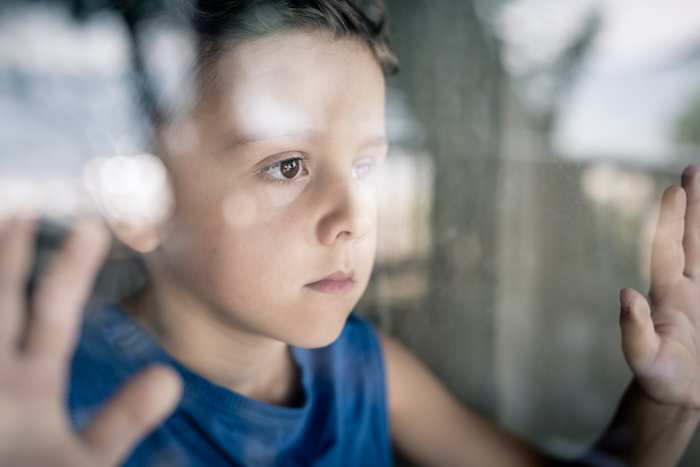Behavioural and emotional disorders refer to conditions characterised by a pattern of disruptive behaviours that are developmentally inappropriate, impact daily functions, and go beyond typical child misbehaviour. These chronic issues tend to emerge from childhood through adolescence. Common disorders include oppositional defiant disorder, conduct disorder, and attention deficit hyperactivity disorder (ADHD).
Symptoms may include hostility, impulsivity, defiance towards authority figures, intentional destruction of property, deceitfulness, theft, aggression towards people or animals, and violation of rules. While behaviours can vary greatly depending on the type and severity of the disorder, they often significantly impair a child’s emotional, social, academic, and family functioning and require proper child counselling.
Contributing Factors
The causes of behavioural disorders are complex and influenced by both biological and environmental factors. Brain chemistry, genetics, prenatal damage, infections, trauma, or neurodevelopmental issues may play a role. Environmental elements like ineffective parenting, inappropriate discipline, family instability, neglect, social rejection, or exposure to violence can also contribute to behavioural problems.
Getting an accurate diagnosis from a paediatric specialist is crucial for the appropriate treatment of behavioural disorders. Other underlying issues like anxiety, depression, obsessive-compulsive disorder, and learning disabilities can also co-occur alongside problematic behaviours. Complex cases require a comprehensive treatment plan tailored to the child’s unique needs.
Evidence-Based Treatment Options
Treatment of behavioural disorders aims to teach children adaptive behaviours, coping strategies, social skills, and self-regulation so they can relate positively with others and function appropriately across home, school, and community contexts.
Common interventions include:
- Parent training programs to promote consistency, emotional support, structure, and positive reinforcements at home
- Behaviour modification therapy and cognitive behavioural therapy (CBT)
- Social skills training groups
- School accommodations and specialised academic support
- Medication in some cases for issues like ADHD or severe aggression
- Intensive therapies like functional family therapy, multisystemic therapy, or wilderness therapy programs in severe cases
With consistent intervention, children can gain emotional and behavioural control, strengthen self-esteem, achieve their potential academically and socially, and nurture healthy family relationships.
Understanding Childhood Emotional Disorders – Signs of Emotional Disturbance
When children exhibit emotional or behavioural responses that are inappropriate for their age or developmental level over an extended period, it signals an underlying mental health problem. Emotional disorders typically emerge before age 18, causing children significant distress and functional impairment in their lives.
According to the best psychologist in India, evident signs of emotional disturbance in children include:
- Inability to learn at expected grade level despite normal intelligence
- Difficulty building or maintaining age-appropriate relationships
- Developmentally inappropriate behaviours
- Fearfulness, sadness or mood changes that seem excessive
- Physical symptoms or irrational fears related to personal or academic problems
Common Diagnoses
Specific disorders involve anxiety, depression, obsessive-compulsive behaviours, hypomanic states like bipolar disorder, thought disorders like schizophrenia, as well as stress and trauma disorders like PTSD. These conditions can severely disrupt emotional, social, behavioural and academic development throughout childhood without treatment, and need proper child counselling.
The Role of Healthy Attachment
Nurturing healthy attachments is at the core of supporting children’s behavioural and emotional well-being. This means ensuring every child receives warm, consistent and emotionally responsive caregiving from their primary guardian, especially in early childhood. Children thrive when parents or caregivers consistently attend to their needs affectionately while providing clear boundaries to explore their expanding world safely.
If parents struggle with their own unresolved trauma, mental health issues, or overwhelming life stressors, it can severely rupture critical parent-child bonds and derail healthy development. In these cases, entering the caregiver into professional treatment is just as crucial as intervening directly with the child. Healing the caregiver’s psychological and relational wounds restores their ability to provide nurturing attention.
Strengthening family relationships and attachment go hand-in-hand with resolving childhood disorders for optimal outcomes. Evidence-based therapies like parent-child interaction therapy, child-parent psychotherapy, and attachment-based family therapy specifically build caregiver attunement, nurture the parent-child bond through playful engagement, and leverage this loving foundation to improve children’s behavioural and emotional control.
The Bottom Line – Seeking Help
Parents or guardians who suspect their child has a persistent mental health condition should seek a comprehensive evaluation from the best psychologist. Early intervention leads to the best prognosis by preventing the worsening of symptoms over time.
Treatment typically involves psychotherapy like cognitive behavioural therapy (CBT), parent training, and school support. In some cases, paediatric psychiatrists may recommend medication or community-based services to enable children to manage their symptoms and function normally at home and school.
Offering compassion, emotional availability, structure, and consistency goes a long way to facilitate a child’s healing and growth when a disorder emerges. Ultimately, children can gain self-understanding and coping skills to navigate life’s challenges with therapy and support from child psychology specialist Dr. Dipti Yadav.
About Author:
Dr. Dipti Yadav is a licensed psychologist specialising in paediatric behavioural health and childhood emotional disorders. Her holistic practice integrates attachment-based family therapy, parent training, play therapy, and trauma-informed care to heal ruptured bonds and nurture healthy development in children facing mental health challenges. She prioritises early, compassionate intervention to help clients build coping skills and resilience.


